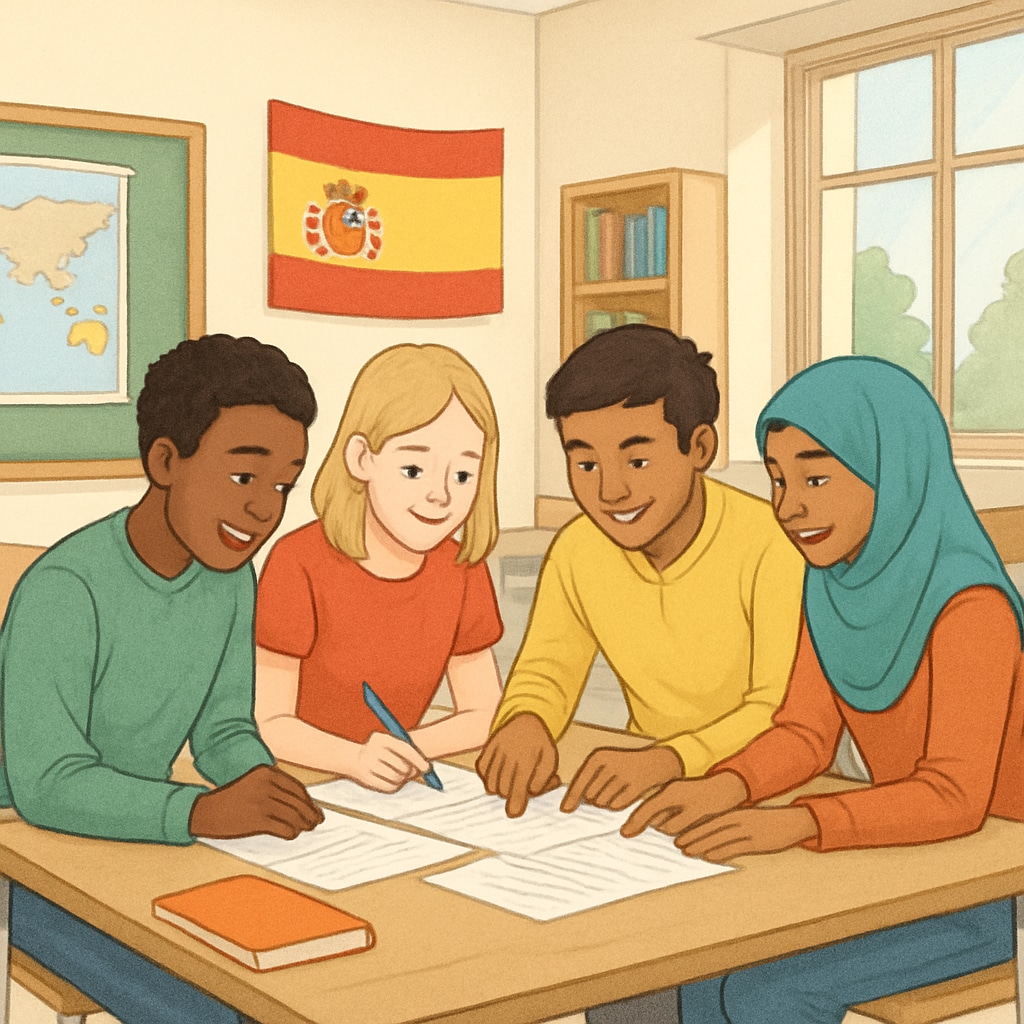As globalization continues to shape our world, the idea of studying abroad has become increasingly appealing to students seeking both academic and personal growth. For Azerbaijani students planning to pursue a master’s degree in Spain, adaptability and integration are key factors in ensuring a successful transition. This article explores how K12 education can lay the foundation for international adaptability, helping students thrive in cross-cultural environments and navigate the challenges of studying and living abroad.
Why Adaptability and Integration Matter in an International Context
When Azerbaijani students move to Spain for higher education, they embark on a journey that requires not just academic excellence but also the ability to adapt to a new culture, language, and social norms. Adaptability and integration are essential for building connections, succeeding in a competitive academic environment, and fully experiencing life in a new country. For example, understanding Spanish culture and traditions helps international students feel more at home and forge meaningful relationships with locals.
In addition, these skills are critical for career development. Employers today value candidates who can work effectively in diverse teams and adapt to global business environments. Therefore, preparing students with these competencies during their K12 education is a long-term investment in their future success.

How K12 Education Builds Global Adaptability
K12 education plays a pivotal role in shaping students’ international perspectives and preparing them for future challenges. By incorporating global themes and cross-cultural experiences into the curriculum, schools can foster adaptability and integration skills early on. Below are some strategies:
- Language Learning: Introducing foreign languages such as Spanish at an early age helps students develop communication skills and cultural awareness. Mastery of the local language significantly eases integration into a new society.
- Cultural Exchange Programs: Schools can facilitate student exchange programs or virtual cultural exchanges, allowing students to experience other cultures firsthand and build empathy for people from diverse backgrounds.
- Global Curriculum: Incorporating global history, literature, and current events into lessons encourages students to think beyond their immediate environment and appreciate the interconnectedness of the world.
These initiatives not only prepare students for academic success but also equip them with the social and emotional skills needed to thrive in international settings.
Overcoming Challenges While Studying Abroad
Despite the benefits, studying abroad comes with its own set of challenges. Azerbaijani students in Spain may face cultural shock, language barriers, and feelings of isolation. However, with proper preparation during their K12 education, these obstacles can be mitigated.
For instance, schools can provide workshops on cultural adaptability and resilience. Students can learn how to navigate unfamiliar social settings, manage stress, and seek support when needed. Additionally, K12 educators can emphasize the importance of open-mindedness and curiosity, which are invaluable traits when adjusting to a new culture.

The Role of Community and Support Networks
Another critical factor in successful integration is the presence of a supportive community. Universities in Spain often have dedicated resources for international students, including mentorship programs, language support, and social events. Azerbaijani students can benefit greatly from engaging with these resources while also seeking connections within the local community.
Similarly, maintaining ties with their home culture can provide emotional stability. Participating in cultural events and staying connected with fellow Azerbaijani students can create a sense of belonging, even in a foreign land.
Ultimately, preparing for these experiences during the K12 years allows students to approach their study abroad journey with confidence and enthusiasm, knowing they have the tools to adapt and succeed.
Conclusion: Education as a Bridge to Global Opportunity
For Azerbaijani students planning to study in Spain, adaptability and integration are not just essential skills—they are pathways to personal and professional growth. By fostering these abilities during the K12 years through language learning, cultural exposure, and global curricula, educators can equip students to embrace the challenges and opportunities of studying abroad.
As a result, these students will not only excel academically but also become global citizens capable of thriving in an interconnected world. This approach to education ensures they are well-prepared to contribute to and benefit from the rich diversity of life in Spain and beyond.
Readability guidance: The article uses short paragraphs, includes lists for clarity, and incorporates transition words like “however,” “in addition,” and “as a result” to enhance flow. Passive voice is minimized, and average sentence length is kept within the recommended range.


